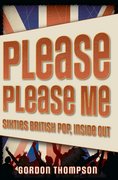Songwriting had gained the Beatles entry into EMI’s studios and songwriting would distinguish them from most other British performers in 1963. Sid Colman at publishers Ardmore and Beechwood had been the first to sense a latent talent, bringing them to the attention of George Martin at Parlophone. Martin in turn had recommended Dick James as a more ambitious exploiter of their potential catalogue and, to close the deal, James had secured a national audience for the Beatles. Nevertheless, as the band grew in popularity, James knew that McCartney and Lennon would attract the attention of other music publishers.
Most fans, unless they bought sheet music, were at best only vaguely aware that music publishers had any role at all in popular music, let alone that they controlled an economically critical part of the industry. Even Lennon and McCartney at first underestimated the importance of music publishing until probably the first royalty checks began arriving at manager Brian Epstein’s NEMS Enterprises offices. Every time someone purchased a recording of one of their songs—no matter by whom—both the songwriters and the publisher profited. And every play on the radio and every television appearance did the same.
The home of Britain’s music publishing industry resided in London’s Denmark Street, a one-block stretch of offices, studios, and stores near Soho, serviced by a small pub, a café, and a steady stream of aspiring songwriters. Dick James’s office sat at the corner of Denmark Street and Charing Cross Road, not far from the premises of Southern Music, Regent Sound Studios, and other music-centered establishments. Brian Epstein had walked into these offices in November with a copy of “Please Please Me” and the hope that James could break the Beatles into the national media. James delivered immediately, booking an appearance for the band on the 19 January 1963 edition of ABC’s television show, Thank Your Lucky Stars.
The traditional role of the music publishers was to plug songs, bringing them to the attention of artist-and-repertoire and/or personal managers in an effort to have them match compositions with performers; but rock and roll was changing that model. When EMI’s Columbia Records released Cliff Richard and the Drifters’ recording of Ian Samwell’s “Move It” in August of 1958, London saw the start of musicians performing their own music. The tradition only deepened with Johnny Kidd and the Pirates’ “Shakin’ All Over” in June 1960. American artists such as Chuck Berry, Buddy Holly, and Carl Perkins routinely wrote and recorded their own material, unlike singer Bobby Rydell or many other pop stars who performed material written by professional songwriters. In Britain, songwriting recording artists often proved fleeting phenomena.
With “Love Me Do” and “Please Please Me,” as well as a number of other originals that would appear on their first album Please Please Me, John Lennon and Paul McCartney demonstrated their ability to write and perform their own material with spectacular results. Nevertheless, they knew the model and their first efforts to write a song for another performer met with mixed results. Touring with Helen Shapiro, the two songwriters futilely attempted to convince her and her management to record their song “Misery.” Another performer on the show, Kenny Lynch happily picked up the tune and very soon other artists would be looking for songs by McCartney and Lennon. Dick James, perhaps worried that with greater success the two ambitious Liverpudlians (and their manager) might bolt for yet another publisher, sought a strategy that would keep them as clients.
McCartney and Lennon were not the only songwriting performers in London. Southern Music had contracted eager songwriters and willing performers John Carter and Ken Lewis (later the core of the singing group the Ivy League) to write for the publisher. Their mentor at Southern, Terry Kennedy had even dubbed their band the “Southerners” (with a young Jimmy Page on guitar). However, they tended to write tunes for other singers and to perform songs written by other songwriters, all under the umbrella of their publisher.
Dick James’s big idea was to have John Lennon and Paul McCartney become part owners of their own publishing venture: Northern Songs. The arrangement that Epstein, McCartney, and Lennon made with James must have seemed good at the time, especially given that most young composers had no income from their work other than their author royalties. Northern Songs rewarded the two Liverpudlians with a larger piece of the pie, dividing the ownership of company between (i) Dick James Music, (ii) NEMs, (iii) Lennon, and (iv) McCartney. Dick James Music held a 51% voting share, leaving Lennon and McCartney each 20%, and NEMS Enterprises picking up the remaining 9%; however, James also took a 10% administrative fee off the top, so that in practice, the songwriters and their manager shared about 44% of the income.
Lennon and McCartney already had an agreement with Epstein to write songs, but a company dedicated to their music brought the game to an entirely new level. This would not be the last time that they would be the first to explore new territory in the business, from which other rock and pop artists and their managements would learn.


[…] Northern Songs (their publishing company) established, the Beatles needed a song for their next single and, […]
I have a 1963-64 Beatles song book with photos of Beatles on first page & middle page put out northern songs dick James & Gil music corps would like know is it worth keeping thanks John